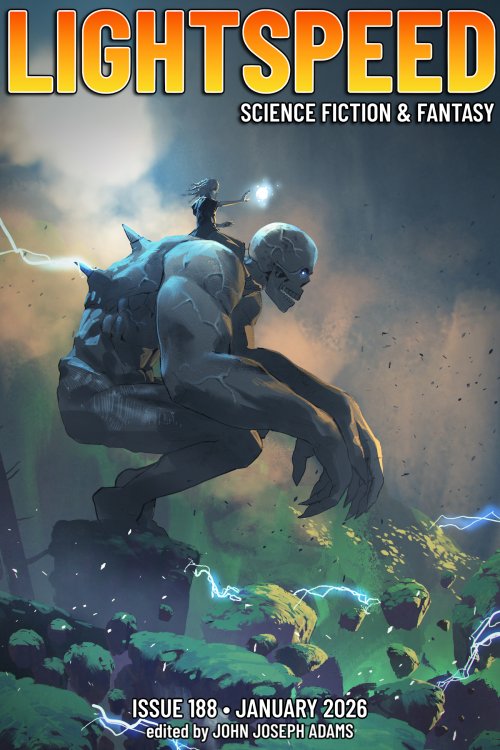What was the inspiration for this story?
I’d been reading a lot about Soviet Russia, and what was striking, to me, was how fruitless all of the resistance against it was. The Soviet regime lasted for generations, and when it fell, it wasn’t the people who overturned it; instead, it sort of just ran out of steam. Which is to say, all of the dissidents, all of the samizdat writers, all of the people who got shot or sent to the gulag . . . they really didn’t accomplish anything.
In our society, we valorize dissent. We’re literally taught in school that if one man refuses to knuckle under, then the entire world can change. That’s also a key element of so many fantasy stories. But it’s just not true. Oftentimes, you lose. The problem is, you don’t know what’s going to happen. You don’t know if you’ll win or lose. You don’t know what courage is. So it’s impossible to know, ahead of time, what’s the right thing to do.
Usurus—by denying the ghost of the Emperor his torture of Tiktus—goes against his earlier teachings of learning to obey and live under the rule of a despot. What do you think that says about him as a teacher versus him as a citizen of this regime?
Philosophy is full of figures who compromised their ideals in order to survive. I can’t say exactly who I was thinking of when I wrote Usurus. I imagine he’s based somewhat on Socrates, who, famously, was sentenced to death for his beliefs and who, equally famously, refused to flee from the city, because he felt it was his duty to die if his people commanded it.
But I think that I must’ve also been thinking of Seneca, the Stoic philosopher who served as one of Nero’s chief advisors. Seneca counseled holding yourself free from the moment and from temporary pleasures; he counseled doing your grim duty, no matter what. But he also lived a fabulously wealthy life. He used his position as Nero’s tutor, and later minister, to make himself possibly the richest man in the Empire. And yet, at the same time, he ruled well, and during his life he successfully protected the Empire from Nero’s worst impulses.
Anyways, I don’t actually think in this case Usurus is going against what he said. Actually, he’s not thwarting the Empire; he’s thwarting Tiktus. This totalitarian regime demands that its peoples’ spirit be crushed, and Usurus gives them a symbolic example of that crushing, in the spectacle of one of their greatest thinkers savagely beating out the brains of one of its youth. This too mirrors the Soviet Union—a place where it was impossible to keep your hands clean and stay above the fray. Either you betrayed your friends and colleagues, or you suffered for your purity.
My favorite line in this story is, “We could struggle, even in the worst circumstances, to be good people.” Do you think that being a good person is a constant struggle? Is Usurus “good people” by the end of the story, even if he had good intentions?
I don’t know. His actions save people. But maybe if he hadn’t done what he did, the people would’ve risen up. Maybe Tiktus’s death would’ve meant something.
What other things are you working on? What’s next for you?
So many things! My first young adult novel, Enter Title Here (a contemporary realist novel), came out in the summer of 2016. My second book is currently on submission to publishers. I’m also working on a fantasy YA novel: an epistolary novel starring a non-magical boy whose best friend gets into a wizarding school (kind of like Hogwarts), and who begins a furious letter-writing campaign to get himself admitted as well.
Enjoyed this article? Consider supporting us via one of the following methods:







